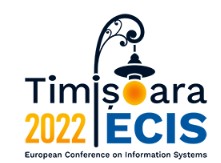Loading...
Paper Number
1685
Abstract
Does digital technology help or hinder the realization of social justice in government services? Applying theories of distributive justice, we analyzed 10-year data from Boston's 311 system (for residents to make requests for non-emergency services) paired with data from the American Community Survey. We found that, as residents used the system's digital channels (website and mobile app) more frequently, they submitted more requests. However, such technical efficiency from digital channel use, to our surprise, exacerbated the disparities between high-income and low-income communities in request volume. This unexpected finding may be explained by the uneven channel use trajectories and distributions of repeat users in different communities, as our additional analysis shows. These results not only have exposed previously hidden inequalities but also may help reconcile different theories of distributive justice. Practically speaking, technical efficiency and social justice should be balanced when employing digital technology in coproducing government services.
Recommended Citation
Wang, Ping; Lee, Myeong; Hangen, Forrest; O'Brien, Daniel T.; and Tang, Xinlin, "Social Justice & Technical Efficiency: The Role of Digital Technology in Boston's 311 System" (2022). ECIS 2022 Research Papers. 117.
https://aisel.aisnet.org/ecis2022_rp/117
When commenting on articles, please be friendly, welcoming, respectful and abide by the AIS eLibrary Discussion Thread Code of Conduct posted here.


